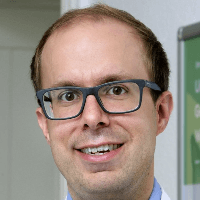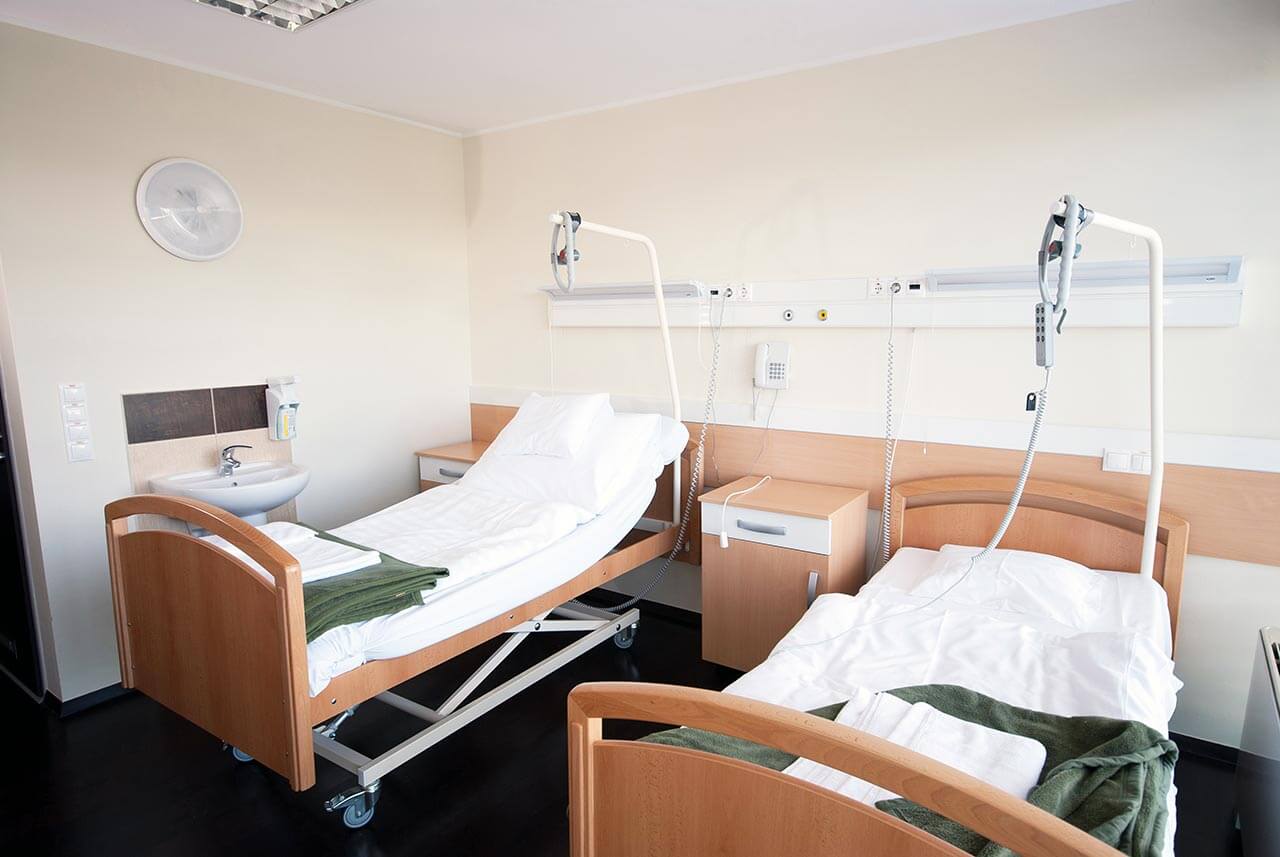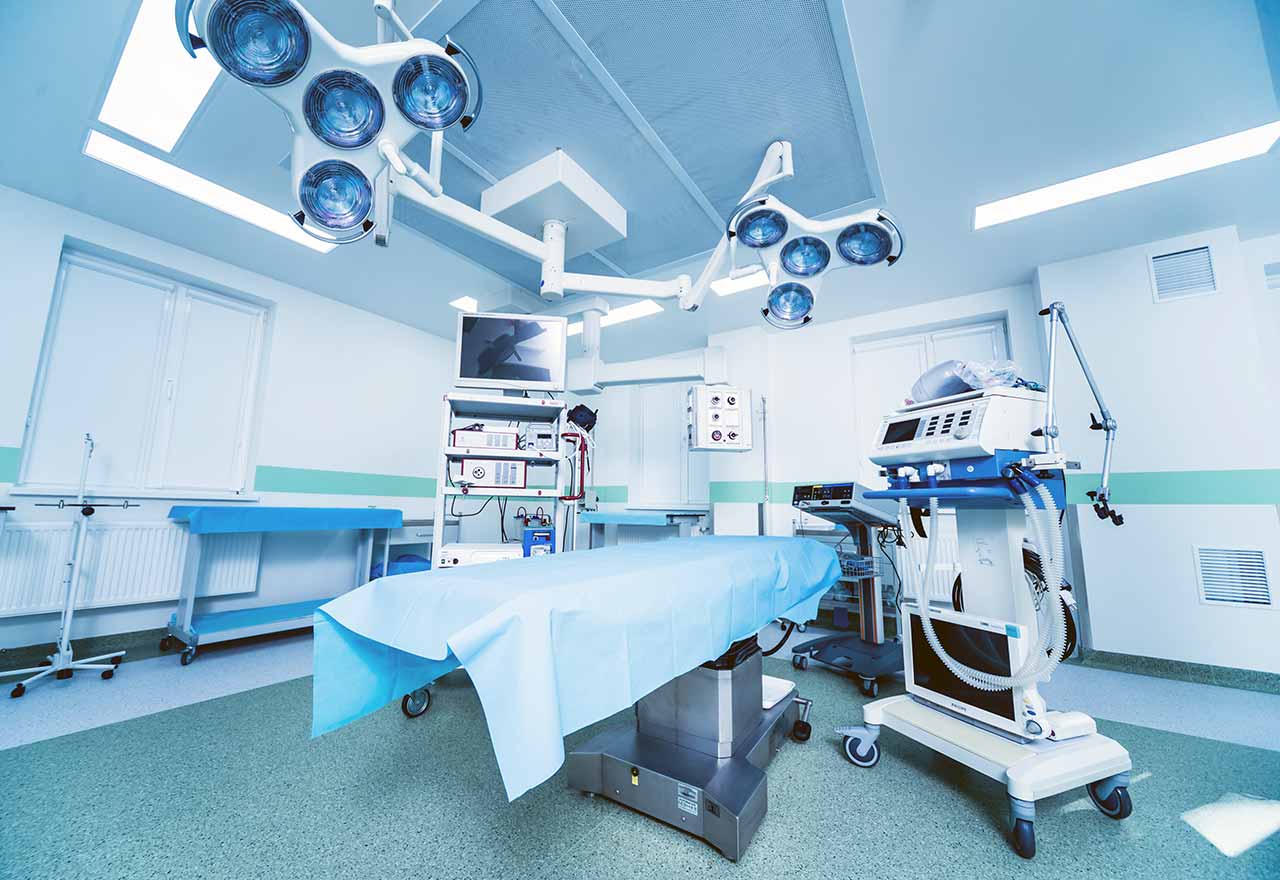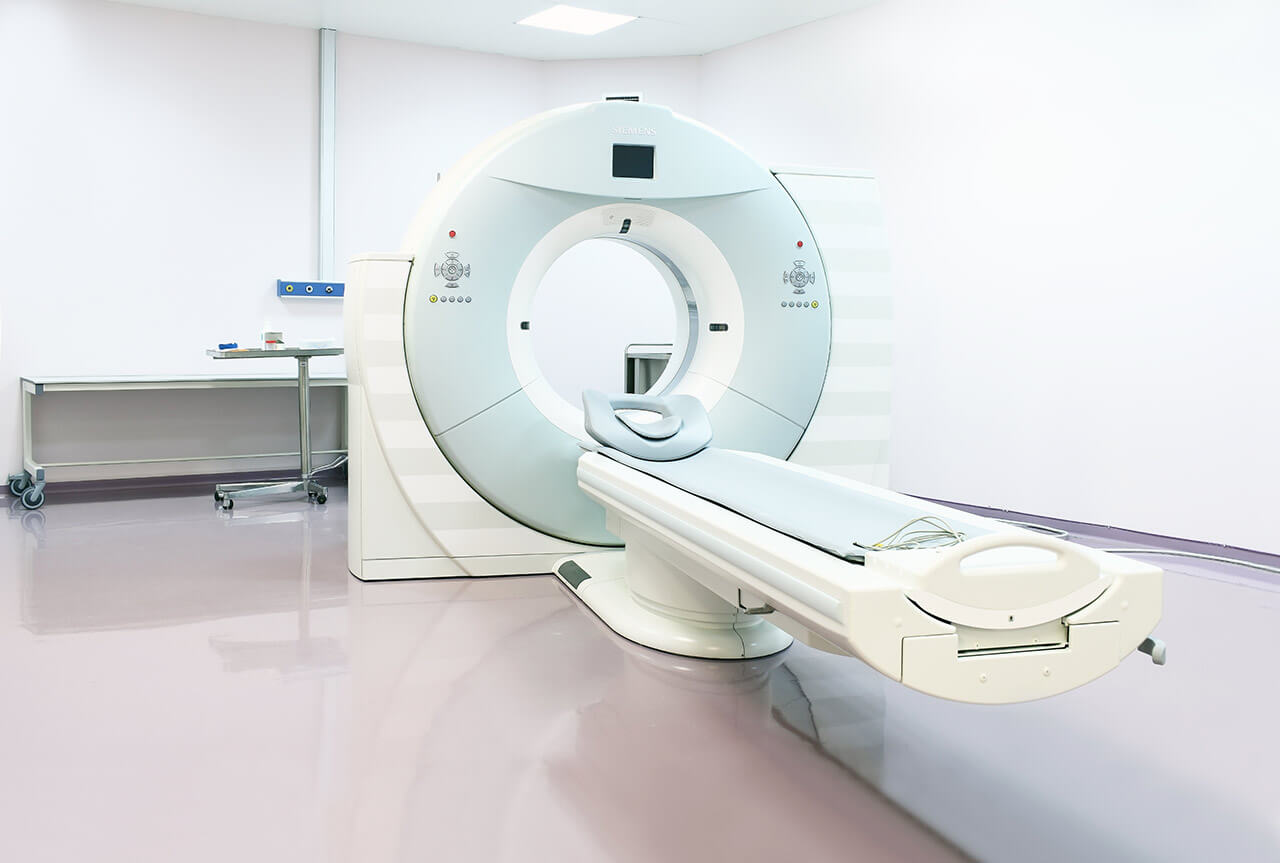
The program includes:
- Initial presentation in the clinic
- clinical history taking
- review of medical records
- physical examination
- laboratory tests:
- complete blood count
- biochemical analysis of blood
- indicators of inflammation
- indicators blood coagulation
- ophthalmologic examination:
- retinal examination
- gonioscopy
- slit-lamp examination
- pupil function tests
- ocular motility test
- ophthalmoscopy
- perimetry (visual field test)
- computer perimetry
- visometry (without correction and with correction)
- keratometry
- pachymetry
- refractometry (objective, subjective, cycloplegic)
- autorefractometry
- non-contact tonometer
- biomicroscopy
- preparation according to preoperative standard
- treatment of cataract and glaucoma with
ultrasound phacoemulsification - symptomatic treatment
- nursing staff services
- elaboration of further recommendations
Required documents
- Medical records
Service
You may also book:
 BookingHealth Price from:
BookingHealth Price from:
About the department
The Department of Ophthalmology at the HELIOS University Hospital Wuppertal offers the full range of medical services for the diagnostics and treatment of diseases of the eye and its appendages. The department also carries out preventive visual acuity testing, the purpose of which is to prevent the development of visual loss or to detect it at the early stage, for example, in patients with diabetes mellitus. The department's specialists carry out both conservative treatment with the use of medications and surgical treatment using modern laser systems. Long clinical experience and the availability of state-of-the-art equipment in the medical facility allow the doctors to effectively restore vision even in the most complex clinical cases. The department's specialists focus on patients with cataracts, glaucoma, as well as on vitreous and retinal diseases. Prior to the treatment, the ophthalmologist holds a comprehensive consultation, during which he talks in detail about the features of the upcoming treatment, possible risks and the final result. In most cases, diagnostics and treatment are carried out on an outpatient basis – hospitalization and constant medical supervision are required only in complex clinical cases. The Head Physician of the department is Prof. Dr. med. André Rosentreter.
At the initial appointment, the ophthalmologist studies the patient's medical history and prescribes the necessary set of diagnostic procedures to assess the condition of the eye apparatus. The diagnostic protocol may include such examinations as measuring intraocular pressure, pachymetry, coherence tomography, refractometry, biomicroscopy, visual field testing, ultrasound scans, and other procedures. The high-quality diagnostics is the key to effective treatment, and therefore the department's diagnostic rooms have state-of-the-art equipment, which makes it possible to detect pathology and its causes as accurately as possible, as well as to assess the state of the eye apparatus.
Cataract is one of the most common ophthalmic diseases that the department's doctors regularly deal with in their clinical practice. Cataract is characterized by partial or total clouding of the lens located between the iris and the vitreous body. The lens acts as an anatomical ocular, and its main task is to refract light rays with their subsequent projection onto the retina. The clouding of the lens disrupts the refraction of the rays, which in turn causes decreased visual acuity or its total loss. To treat cataract, the department's specialists practice both conservative and surgical treatment methods with the use of laser equipment. The first-line treatment is drug therapy, which includes the use of eye drops to improve metabolic processes in the tissues of the eye and the lens. Nevertheless, the department's doctors warn patients that eye drops only stop the progression of cataract, but laser intervention is still required to completely eliminate the pathology. During the manipulation, the clouded lens is replaced by an intraocular lens. The operation is performed under local anesthesia and lasts no more than 30 minutes. As a rule, patients tolerate the surgical procedure well. Within a month after the operation, the patient must follow certain restrictions, after which vision is restored completely.
Patients with glaucoma also regularly visit the department. This pathology increases intraocular pressure, which leads to the destruction of retinal cells and optic nerve atrophy. WIth detected glaucoma, the department's specialists strongly recommend not to hesitate with treatment, since the pathological process can cause irreversible changes and total vision loss. When the disease is detected at the early stage, the department's doctors usually prescribe medication, which includes the use of the very latest antiglaucoma drugs. The medicines help reduce the production of intraocular fluid and improve its outflow, which in turn ensures intraocular pressure normalization. At the advanced stages, when pharmacotherapy does not allow achieving the desired results, ophthalmologists prefer modern laser interventions. In complex cases, the full-fledged surgery may be required.
The department's specialists pay due attention to the surgical treatment of neoplasms of the eye and its appendages, which include lacrimal and eyelid tumors, intraocular tumors (melanomas), hemangiomas, lymphangiomas, lymphomas, optical gliomas, rhabdomyosarcomas, etc. Most eye tumors are benign, but require immediate surgical treatment followed by histological examination for malignancy. The first place among the most common malignant eye tumors is occupied by uveal melanoma. This disease requires accurate diagnostics with CT, MRI, X-ray and needle biopsy. The treatment begins with surgical enucleation and is complemented by external beam radiation therapy, brachytherapy, and transpupillary thermotherapy. Whenever required, doctors perform total eyeball removal with follow-up replacement with a cosmetic implant, which practically does not differ from the patient's own eye. Palliative therapy is indicated at the advanced stages of the oncological process. It is aimed at suppressing tumor growth and improving the quality of life for the cancer patient. After the completion of the main treatment course, the patient must regularly undergo follow-up examinations. In case of positive dynamics, diagnostic tests are carried out once a year in order to prevent a possible recurrence.
The department's range of medical services includes:
- Diagnostics and treatment of cataracts
- Diagnostics and treatment of glaucoma
- Diagnostics and treatment of retinal detachment
- Diagnostics and treatment of age-related macular degeneration
- Diagnostics and treatment of diabetic retinopathy
- Diagnostics and treatment of eyelid diseases
- Diagnostics and treatment of nasolacrimal duct diseases
- Diagnostics and treatment of eye infections
- Diagnostics and treatment of strabismus and amblyopia
- Diagnostics and treatment of neuro-ophthalmic diseases
- Diagnostics and treatment of eye tumors
- Diagnostics and treatment of other ophthalmic diseases
Curriculum vitae
Since July 2018, Prof. Dr. med. André Rosentreter has been the Head of the Department of Ophthalmology at the HELIOS University Hospital Wuppertal. Prior to that, the doctor worked in the same hospital as the Senior Physician. Prof. Rosentreter worked for 8 years in the Department of Ophthalmology at the University Hospital Cologne, where he had his board certification in Ophthalmology. At the beginning of 2014, he had his habilitation procedure on the following subject: "Innovative concepts in the surgical treatment of glaucoma". The specialist received his medical education at the Faculty of Medicine of the University of Cologne.
Dr. André Rosentreter has vast experience in surgical and conservative vision correction, and has been successfully engaged in research activities for many years. Conservative and surgical treatment of glaucoma is of particular clinical interest for the professor.
Photo of the doctor: (c) Helios Universitätsklinikum Wuppertal
About hospital
According to the prestigious Focus magazine, the HELIOS University Hospital Wuppertal ranks among the top medical facilities in Germany!
The hospital rightfully enjoys the status of the maximum care medical facility and provides its high-quality services in all modern fields of medicine. The hospital operates on the basis of the Witten/Herdecke University, which was opened in 1982 and today is considered one of the best in Germany. Thus, many head physicians of the medical complex are in charge of the corresponding department at the university, which contributes to the close intertwining of research activities and clinical practice. The hospital has long traditions and its own values – the main goal of doctors is to provide comprehensive medical care focused not only on curing the disease, but also on the patient's personal needs.
The hospital has 1,000 beds. The doctors of the medical facility admit more than 50,000 inpatients annually. In addition, more than 100,000 outpatients undergo diagnostic and therapeutic procedures. Such high attendance rates speak for themselves and are undeniable proof of the high-quality medical service of the European level. The medical staff of the hospital has more than 2,500 employees, whose main task is to restore the patient's health and provide him with a decent quality of life.
The hospital has more than 26 specialized departments, as well as many narrowly focused centers and institutes dealing with the treatment of patients suffering from a particular group of diseases: Breast Center, Cancer Center, Cardiology Center, Trauma Center, Spine Center and others. The primary clinical focus of the medical center is cancer treatment.
For more than 25 years, the hospital has been running a special quality management system for medical care, which regulates the aspects of work of the medical staff, compliance with hygiene and safety standards during diagnostics and treatment. Consequently, patients can be sure that their health is in the safe hands of true professionals who work in accordance with the latest medical standards.
Special attention should be paid to the honors of the hospital for excellent patient care. The medical complex has quality certificates from the German Cancer Society (DKG), the German Trauma Society (DGU), the German Cardiac Society (DGK), the German Stroke Society (DSG) and other professional German societies.
Photo: (с) depositphotos
Accommodation in hospital
Patients rooms
The patients of the HELIOS University Hospital Wuppertal live in comfortable single, double, triple and quadruple rooms. Each patient room has an ensuite bathroom with shower and toilet. The standard room furnishings include a comfortable automatically adjustable bed, a bedside table, a wardrobe, a TV and a telephone. The hospital has Wi-Fi (free). For maximum patient comfort, there is a nurse call device on the bedside table. This device allows the patient to control the TV, radio, turn on or off the lights, and adjust the position of the bed.
The patients of the hospital are also offered accommodation in enhanced-comfort rooms. These rooms additionally provide a safe and a free minibar with soft drinks. The enhanced-comfort rooms also have a spacious bathroom with hairdryer, bathrobe, towels and toiletries.
Meals and Menus
The patients of the hospital are offered three meals a day: breakfast, lunch and dinner. The menu offers a variety of delicious dishes to suit all tastes, including dietary and vegetarian options.
The hospital also has a bistro where one can taste delicious hot dishes, cold snacks, desserts, as well as a cup of tea, coffee or refreshments.
The patients staying in enhanced-comfort rooms are offered a separate menu that includes a wider and more refined range of dishes. In addition, fresh fruit, tea, coffee and desserts are delivered to the patient room every day, if desired.
Further details
Standard rooms include:
Religion
The religious services are available upon request.
Accompanying person
During an inpatient program, your accompanying person can stay with you in the patient room or in the hotel of your choice.
Hotel
During an outpatient program, you can stay in the hotel of your choice. Our managers will help you choose the most suitable options.




